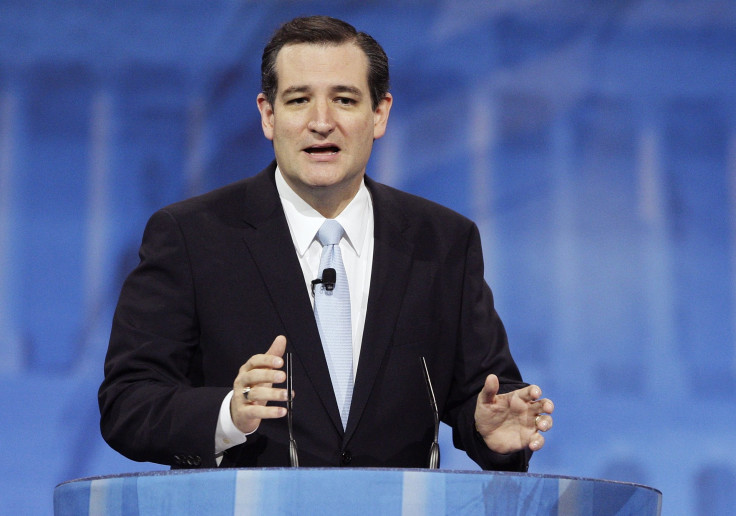Conservatives Renew Attacks On Obamacare, As Taxpayers Continue To Fund Lawmakers' Health Insurance

This week conservatives in the Senate and House renewed efforts to undermine the Patient Protection and Affordable Care Act, the 2010 healthcare reform act known as Obamacare. Efforts to prevent enforcement of the law come just as the Obama administration announced that the federal government would continue to subsidize health insurance premiums for senators, representatives, and their aides.
House Passes The "Keet The IRS Off Your Health Care Act"
On Friday, the House of Representatives voted 232 to 185 to prevent the Internal Revenue Service (IRS) from enforcing the law. Sponsored by Rep. Tom Price, Republican from Georgia, named the bill the "Keep the IRS Off Your Health Care Act." The IRS plays a key role in the Affordable Care Act by offering tax credits to low- and moderate-income families to help them buy private health insurance, as well as levying penalties on people who elect not to buy health insurance and large employers who fail to offer their employees health coverage.
The IRS, currently under investigation by the Department of Justice and Congress, received criticism earlier this year for mishandling applications for tax-exempt status, specifically targeting tea party groups. The blunder has been cited by conservatives as reason to limit the IRS's power to enforce the Affordable Care Act.
"We simply want patients and families and doctors to be in charge of health care, not Washington, D.C., and not the IRS," Price said.
In advocating for the bill, advocates have inflated the amount of power the IRS will hold over consumers' healthcare information and, but Democrats say the agency will only have the usual financial information, in order to give tax credits and levy penalties.
"This should be said categorically: Neither the IRS nor the Department of Health and Human Services will have access to medical records or other personal history, no access whatsoever," Sandy Levin, Democrat from Michigan, said.
Like the House's 40 unsuccessful votes to repeal the healthcare law, passage of the bill is largely symbolic as it has little chance of passing in the upper chamber. President Obama has voiced his intent to veto the bill if it passed.
Grassroots Campaign: Ted Cruz's Defund Obamacare Tour
Senator Ted Cruz of Texas, outspoken opponent of the health reform law and tea party member, is advocating a grassroots strategy for undermining the healthcare law. Later this month, he and Heritage Action for America will kick off a campaign called the "Defund Obamacare Tour."
He will invite other like-minded conservatives and members of the public to join him along nine stops to bring attention to the Sept. 30 vote on federal budget spending. The vote determines all government spending, and is seen as an opportunity to cripple the healthcare law.
The campaign will kick off on August 19 in Fayetteville, Ark., with 9 stops mainly in conservative states.
Cruz brings a sense of urgency to his campaign, saying that now is the time to stop the Affordable Care Act. It will be too late to repeal the law once Americans become "addicted to the subsidies, addicted to the sugar," Cruz said.
"If we don't do it now, in all likelihood we never will," Cruz told reporters. "In modern times no major entitlement, once it was implemented, has ever been unwound."
Continued Federal Support For Lawmakers' Health Insurance Premiums
Recently, lawmakers and congressional staffers have been voicing concerns over another change in the Affordable Care Act, an amendment introduced by Sen. Chuck Grassley, Republican from Iowa, that requires senators, representatives, and staffers to buy insurance through the new exchanges. The amendment was motivated by the idea that lawmakers should be invested in the law. Previously, lawmakers received benefits through a Federal Employees Health Benefits Program, a system used by most federal employees.
Confusion over how lawmakers' healthcare insurance premiums would be paid caused a debacle on Capitol Hill prior to the Obama administration's solution. Senators and members of congress on both sides of the aisle feared a brain drain, as federal employees faced the possibility thousands of dollars more a year on healthcare.
The change would have cost lawmakers thousands of dollars out of pocket had the Obama administration not stepped in. Previously, 75 percent of their premiums were supported by the federal government. With the new deal, the government will contribute $5,000 for individual plans and $11,000 for families.



























